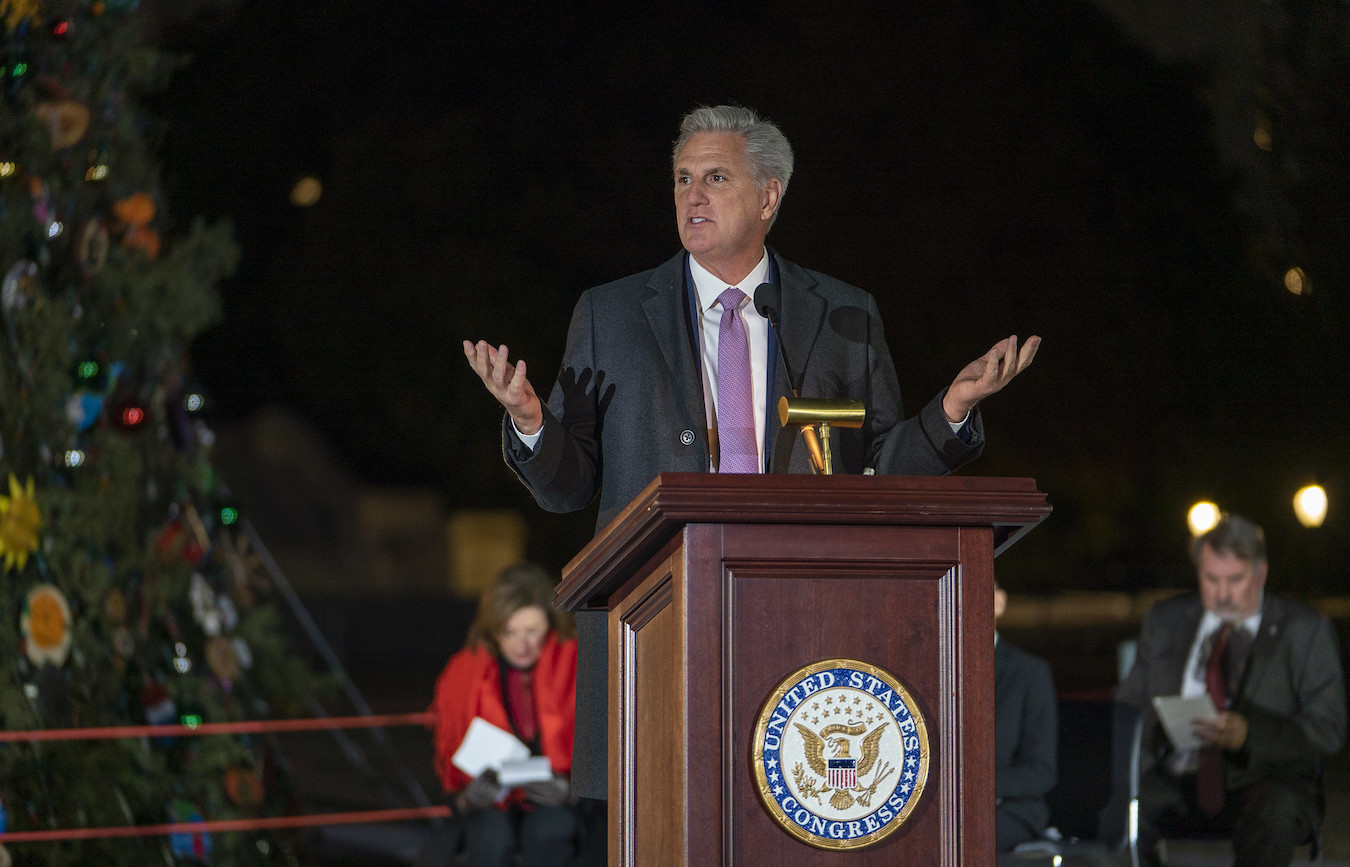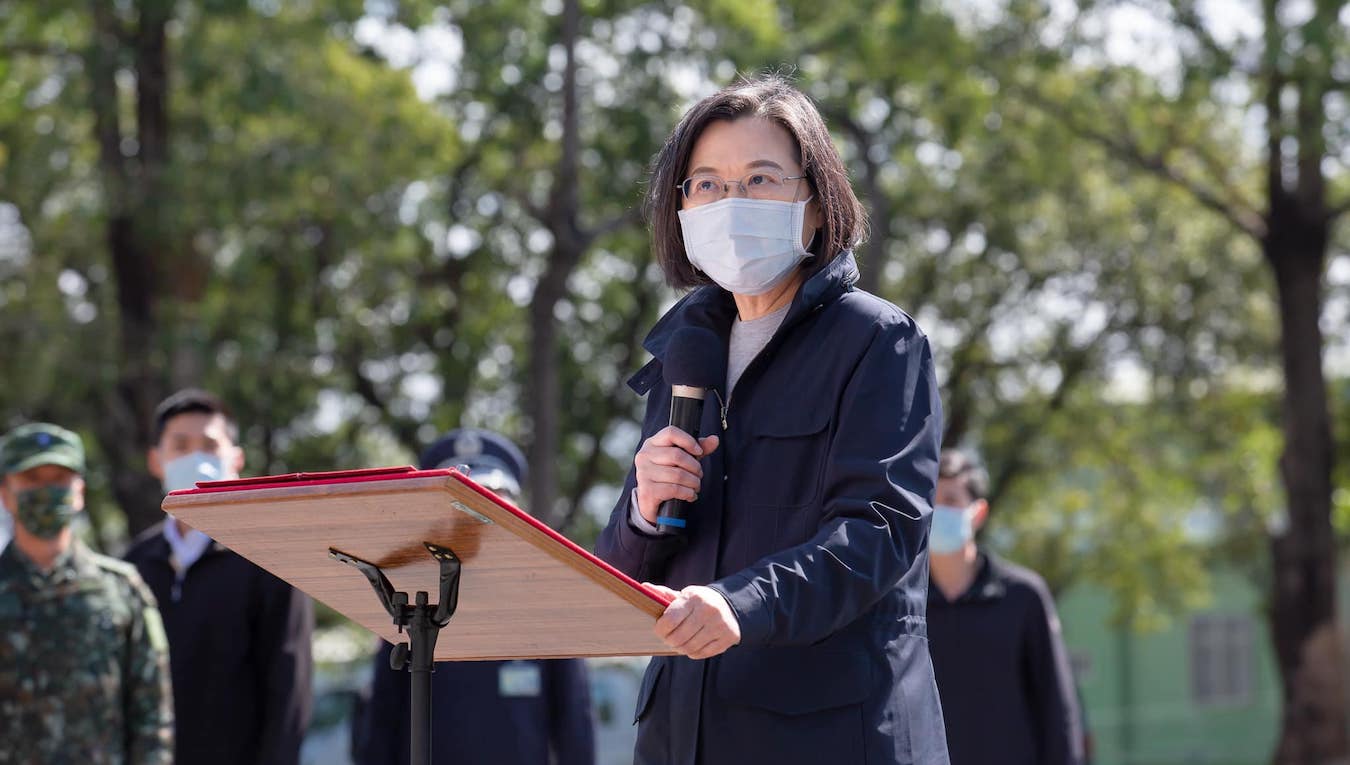by Brian Hioe
語言:
English
Photo Credit: Gage Skidmore/Flickr/CC BY-SA 2.0
REPORTS EARLIER this week suggested that US Speaker of the House Kevin McCarthy intends to visit Taiwan sometime in the spring. Consequently, the Pentagon is preparing for a possible McCarthy visit.
A McCarthy trip to Taiwan, following up on the visit to Taiwan by US Speaker of the House Nancy Pelosi last August, would further set a precedent for the US Speaker of the House visiting Taiwan.
The Pelosi visit was probably aimed at shoring up the Democrats’ credentials as being tough on Taiwan, by stepping up support for Taiwan. As McCarthy is a Republican, a potential visit would cast support for Taiwan in bipartisan terms, though Pelosi was careful to frame her trip as occurring with both the support of Democrats and Republicans.
 Kevin McCarthy. Photo credit: US Department of Agriculture/Public Domain
Kevin McCarthy. Photo credit: US Department of Agriculture/Public Domain
It is a greater question, however, as to how the Chinese government will react. It is possible that a McCarthy trip will be followed up with a series of live-fire exercises around Taiwan. The live-fire exercises that China carried out around Taiwan occurred closer to the island than during the Third Taiwan Straits Crisis and seemed intended at simulating a blockade. It is possible that a visit by McCarthy would simply give China further pretext to carry out military actions aimed at practicing for a possible future military action directed at Taiwan.
Likewise, it is possible that Republican politicians will carry out further actions intended to signal a tough stance during the trip. Representative Mike Gallagher has made it publicly known that he hopes to hold a House Select Committee on China meeting in Taiwan, for example. Gallagher is the chair of the committee.
Either way, what will be key to watch regarding the McCarthy trip is to what extent it potentially sets precedents for the future. This is both in terms of visits to the US by high-ranking politicians such as McCarthy or Pelosi, what actions they take during the visit, how China reacts by way of military actions, and any responses by US forces to Chinese military actions.
It is highly possible that the overall effect ends up heightening tensions in the Asia Pacific. After all, Chinese military action directed at Taiwan could still potentially affect Japan, Australia, or other nations, particularly given the possibility of Chinese military action directed at US bases on Japanese soil. Tensions will be increased with more than just Taiwan or the US.
McCarthy previously suggested in July of last year that he would like to visit Taiwan if he became Speaker of the House. As such, news of the apparent planned visit is not entirely surprising. However, one notes that news of preparations for the McCarthy visit broke ahead of time, as also was the case with the Pelosi visit. This may indicate continued leaks from within the US State Department by those who view visits to Taiwan by high-ranking US government officials as dangerous, as occurred with the Pelosi visit. Or this could have occurred with the Taiwanese government, if actors there hope for the visit to happen–McCarthy may seem weak if he then does not make such a visit. But, certainly, China’s capacity to respond would be limited if there was no news ahead of time regarding the McCarthy visit, and it simply became known after the fact–as visits by US elected officials to Taiwan under the Biden administration have sometimes been.
It is probable that Taiwan will publicly welcome McCarthy. Indeed, at the time of the Pelosi visit, some news reports suggested that the Tsai administration tried to turn down Pelosi but was overruled. it is unlikely that the Tsai administration would see itself as having the capacity to turn down a McCarthy visit–particularly since after having allowed the Pelosi visit, it will need to try and present itself as bipartisan. Certainly, the Tsai administration does not want to be perceived as having allowed for a visit but by a Democrat Speaker of the House having snubbed a Republican Speaker of the House.
 Taiwanese president Tsai Ing-wen. Photo credit: Tsai Ing-wen/Facebook
Taiwanese president Tsai Ing-wen. Photo credit: Tsai Ing-wen/Facebook
But, again, like Pelosi, McCarthy’s priorities are probably primarily domestic in nature. That is, visiting Taiwan is with the aim of coming across as tough on China, more so than it is about what would benefit Taiwan. This is particularly the case in light of the fact that there are not likely to be substantive, tangible benefits to Taiwan from a visit, such as a new arms deal or trade agreement, even if the Tsai administration has touted recent progress in trade talks with the US.
At the same time, McCarthy only came to power after his nomination was voted down numerous times, illustrating how the Republican Party that he presides over is significantly divided. It may also prove significant for Taiwan to note to what extent Trumpist Republicans have turned against funding arms for Ukraine, with the claim that Ukraine is freeriding off of the US, and that McCarthy has suggested that he is also in favor of cutting support to Ukraine.
Indeed, even if Republicans hawkish on China may currently see support for Taiwan as in the American national interest–hence why McCarthy would decide to make a visit to Taiwan at this juncture–it is also possible that they would turn on Taiwan down the line. This is something worth noting for Taiwan.

